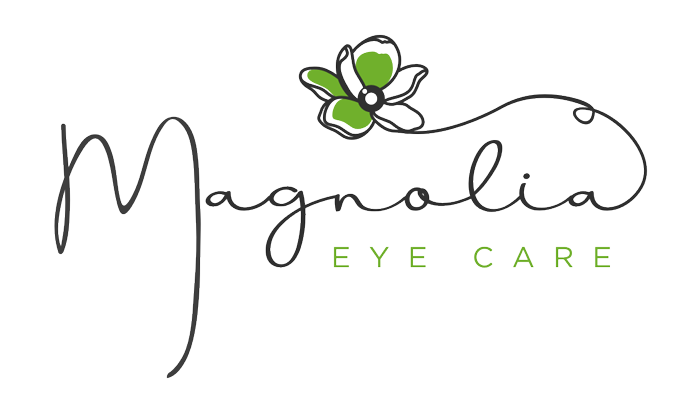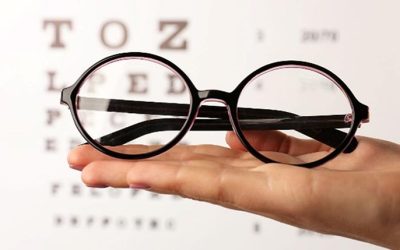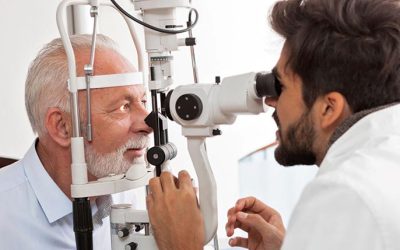Help Your Student Avoid Pink Eye This School Year
In the U.S. alone, students miss an average of 3 million school days a year due to symptoms of conjunctivitis or “pink eye” as it is commonly known. Pink eye is highly contagious and can spread rapidly in areas of close contact, such as schools, daycares,...
Is Your Student at Risk for Digital Eye Strain?
Technology today offers your student so many good things, but Digital Eye Strain isn’t one of them. Also called Computer Vision Syndrome (CVS), this condition is the result of prolonged use of tablets, computers, e-readers, and cell phones — every type of...
9 Student Behaviors That May Indicate A Misdiagnosed Vision Issue
Proper eye care in school-age children is invaluable to their overall health and well-being. Just look at the statistics: 1 in 5 American preschool-age children have an uncorrected vision issue. An estimated 10 million children under age 10 have vision problems....
5 Concerns Parents Voice About Their Student’s Vision
It’s back-to-school season! As a parent, you know that your child needs all of the tools and resources available to be successful in the classroom, on the athletic field, and at social events — as well as to maintain a positive self-image. Did you know...
Sunglasses 101: Everything You Need to Know to Find Your Favorite Pair
It’s summer, and sunglasses are the first accessory you reach for every day. Right!? If not, it’s time to start. Daily exposure to the sun’s harmful ultraviolet rays can lead to unwanted conditions as you grow older, including cataracts, macular...
How to Reduce Your Risk of Eye Injury
July is National Eye Injury Prevention Month. While about half of all eye injuries happen at work (2,000+ eye injuries a day occur at workplaces across the U.S.), you’re just as likely to injure your eyes at home. With that in mind, here’s how to reduce...
Do the Sun’s UV Rays Cause Cataracts?
June, July, and August are when the sun’s rays are most intense in the US. That’s why June 27 is National Sunglasses Day, reminding us about the importance of protecting your eyes from the sun’s ultraviolet (UV) rays by wearing sunglasses every day,...
5 Eye Conditions You May Inherit from Dear Ole’ Dad
On the third Sunday each June, we celebrate Father’s Day to acknowledge Dads and the good things they do. Though the origins of Father’s Day are much different than those of Mother’s Day, the idea is the same: Extending gratitude for the role male...
How Prescription Eyewear Is Made
Eyeglasses are an amazing invention, aren’t they? For centuries, prescription lenses have helped to restore people’s vision and protect their eyes from damage caused by the sun’s ultraviolet radiation and glare, in addition to blue light that comes...
5 Eye Conditions You May Inherit from Your Mother
It’s almost Mother’s Day — time to celebrate moms and everything they do. To all of the great moms we see each day in our offices, taking excellent care of their children’s health and wellbeing, in addition to all of the other priorities that...
3 Reasons To Wear Premium Sunglasses This Sun Season
Spring has officially sprung! As we move into the longer days and stronger UV rays, we cannot emphasize enough the importance of wearing premium sunglasses to protect your eyes from the harmful effects of the sun's ultraviolet (UV) rays. We say it often because...
How Contact Lenses Are Made
If you yourself don’t wear them, you almost definitely know someone who does: Contact lenses — those small, curved pieces of plastic that correct vision impairment — are one of the most successful medical device technologies. They are a part of daily...
5 Causes and 6 Treatments for Digital Eye Fatigue
Do you find yourself staring at digital screens—computer monitors, cell phones, tablets, televisions—for most of the day? Are your eyes tired, red, or itchy? Are they dry or irritated? If you answered yes to these questions, it’s possible that you...
Celebrating the Rise of Women in Optometry
In March, we celebrate Women’s History Month. And we’re proud to say that optometry is one place women are making history. Did you know that optometry began as a predominantly male profession in the late 1800s, but today, women make up nearly half of all...
10 Ways To Minimize The Progression of Low Vision
In February, we recognize Low Vision Awareness Month and the millions of Americans who live with the condition. Low vision is a term used to describe a visual impairment that cannot be corrected by standard glasses, contact lenses, medication, or surgery. It often...
9 Strategies to Adapt to Life With Low Vision
February is Low Vision Awareness Month, a time to increase awareness of this condition which affects millions of Americans each day. Low vision is the term for a visual impairment that cannot be corrected by standard glasses, contact lenses, medication, or surgery....
3 Simple Metaphors To Explain Glaucoma
January is Glaucoma Awareness Month. It is a time to increase awareness of this group of diseases that are known as the “silent thief of sight” because they are painless and symptom-free. Glaucoma cannot be prevented, and though there are treatments, there...
How Your Eye Doctor Diagnoses Glaucoma
Happy 2023! As you start the new year, it’s a common practice to assess what you’re most thankful for and consider goals and resolutions to guide you in the coming 12 months. If you’re fortunate enough to have healthy eyes and good vision, please...


















